My Top Ten Books
Recently, I was tagged over on Rachel Rose Teferet’s blog, in a post about the top ten books that have been influential to her as a writer. To keep the chain moving forward, I’m now sharing my own Top Ten list. So in no particular order, here are the books that have helped me evolve as a writer (and as a person). Note that I had to omit some excellent titles, but there were so many choices that it was hard to come up with just ten. Also, I’m counting series as one item each! Enjoy!
 1) The Bible
1) The Bible
OK, maybe I borrowed an idea from Rachel for how to start my list. Or maybe I just couldn’t lead with any other book. You decide. Either way, the Bible has been an important resource to me, mostly for its abundance of lessons that have helped me and my family through some trying times in our lives. Though I don’t like to think of myself as a religious person (if anything, I prefer the term “spiritual”), the Bible is a special book that will always hold a place on my shelf.
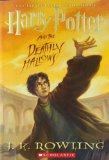 2) Harry Potter, by J.K. Rowling
2) Harry Potter, by J.K. Rowling
This is probably the most important book series of my childhood. Being part of the “Potter generation”, I had the privilege of growing up with this wonderful story, reading each new novel shortly after it was released. With its excellent narration, detailed plot and intriguing characters, the Harry Potter books taught me almost everything I know about storytelling, and I’ll always treasure them as the books that kept me hooked on fantasy for life.
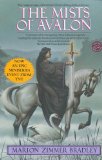 3) The Mists of Avalon, by Marion Zimmer Bradley
3) The Mists of Avalon, by Marion Zimmer Bradley
If Harry Potter was a big part of my childhood, The Mists of Avalon was a big part of my adolescence. This Arthurian fantasy saga introduced me to mature themes such as feminism and religious intolerance, and for that, it was a major step in my development as a writer of more advanced fiction.
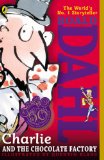 4) Charlie and the Chocolate Factory, by Roald Dahl
4) Charlie and the Chocolate Factory, by Roald Dahl
This was the book that first inspired me to become a writer. After reading Roald Dahl’s enchanting tale about young Charlie and his wild adventures through Wonka’s magical chocolate factory, I knew that creating fantasy stories of my own was something I wanted to do for the rest of my life.
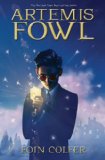 5) Artemis Fowl, by Eoin Colfer
5) Artemis Fowl, by Eoin Colfer
I started reading this series around the same time that I was reading Harry Potter, and I probably loved it just as much. Written by an Irish author, Artemis Fowl never failed to bring a humorous twist to the fantastic adventures about a boy genius and his interactions with the technologically advanced Fairy People. They were also the books that introduced me to “science fantasy”, a genre mixing elements of science fiction and fantasy. What could be better?
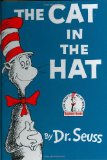 6) The Cat in the Hat, by Dr. Seuss
6) The Cat in the Hat, by Dr. Seuss
It may seem like an odd choice, but I added this children’s book to my list because it was one of the first books that I could ever remember reading by myself. By the time I started learning how to read, we had a huge collection of Dr. Seuss stories, and The Cat in the Hat was one that I always loved reading with my mother. Having been introduced to literature with Seuss’s fun rhymes and memorable characters, it’s no wonder I developed a love of books at such a young age!
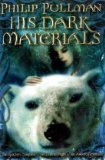 7) The Golden Compass, by Philip Pullman
7) The Golden Compass, by Philip Pullman
I admit, I didn’t start reading the His Dark Materials trilogy until after the movie came out, but I’m glad I did. Though the books are interesting enough for the author’s (often thinly veiled) metaphors criticizing religious organizations, I appreciated the story mostly for its fantasy elements, especially the creative idea of a parallel universe where human souls exist as tangible animal spirits. If anything, The Golden Compass and its sequels have taught me a lot about symbolism, which is one of my favorite parts about writing fiction.
 8) Romeo & Juliet, by William Shakespeare
8) Romeo & Juliet, by William Shakespeare
How could I possibly leave this story out? Most of my favorite romantic stories (as much to read as to write) are about forbidden love, and Romeo & Juliet is certainly the epitome of this plot type. This was the first Shakespearean play I ever read, and after growing accustomed to the style of writing, I quickly fell in love with his poetry. I think what I like most about this story is how it can be interpreted in so many different ways, and how a lot of its elements seem to be relevant even today. Why else would it still be so popular after 400 years?
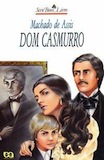 9) Dom Casmurro, by Machado de Assis
9) Dom Casmurro, by Machado de Assis
Why not throw a foreign language book into the mix? Though I had to read several books in Portuguese for school, this was one of the few that I actually liked. Written in the 19th century, Dom Casmurro is a realist story told from the perspective of a jealous man who suspects his wife of having been unfaithful. The main reason I find this book so interesting is because it’s an excellent example of the “unreliable narrator”, as it’s never made clear in the story whether his wife actually cheated on him or it was all just in his head. The author’s achievement of sparking heavy debates over the story to this day make this novel a classic of Brazilian literature.
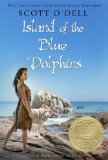 10) Island of the Blue Dolphins, by Scott O’Dell
10) Island of the Blue Dolphins, by Scott O’Dell
This book was recommended to me by my mother, who also read it when she was younger. I enjoyed reading about Karana’s adventures living alone on an island for years, and her story helped me see themes like social interaction and survivalism in a new light. Looking back, I realize this was one of the first examples I’d seen of a strong female protagonist, and I’ve since been inspired to create heroines who are equally independent and profound in character.
Now to move the chain forward, I’m tagging Vanessa Levin-Pompetzki and Inion N. Mathair. What are your top ten books?

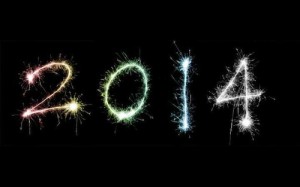

Recent Comments